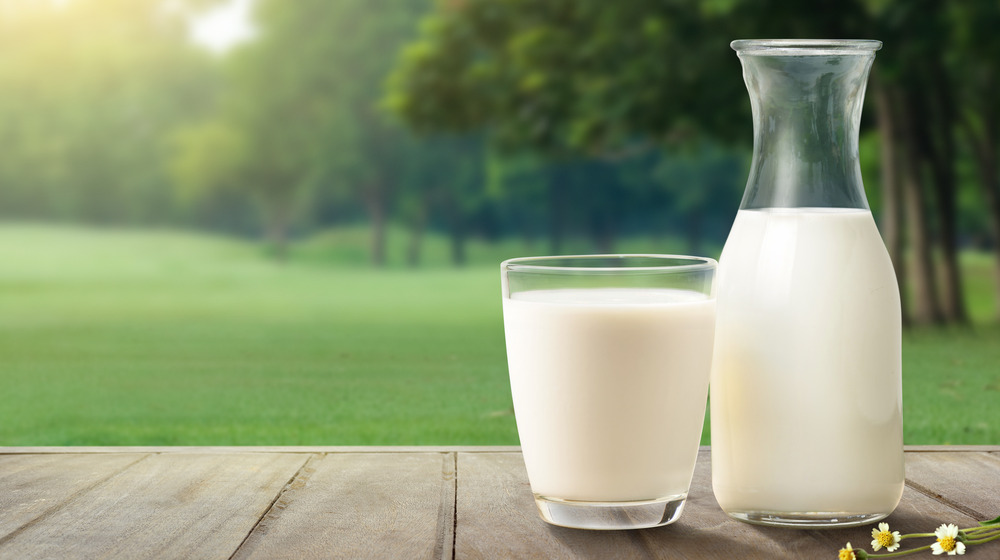Why Plant Owners Should Think Twice Before Throwing Out Expired Milk
You've eaten your cereal, you've dunked your cookies, but the expiration date on your milk jug has come and gone and you still have milk leftover. If you have a garden, you should consider not throwing away your milk just yet. The nutrients that make milk healthful for people — like calcium and B vitamins — also work wonders for plants, according to The Spruce.
Plants need calcium to grow strong cell walls, The Kitchn reports, so calcium deficiency can cause stunted growth. Calcium also helps prevent blossom-end rot, which the The Old Farmer's Almanac explains is a disease that causes tomatoes, peppers, eggplants, and squash to break down while still on the vine. What's more, the University of Minnesota also found that milk acts as a disinfectant, helping reduce other destructive and contagious plant diseases like tomato mosaic virus.
Here's what you can do to repurpose that old jug in the back of your fridge. According to The Spruce, simply mix a 50-50 ratio of water and milk, put the mixture in a spray bottle, and spray it onto the leaves of your plants. (You can also spray it at the base of the plant, so the roots can absorb it directly.) And don't forget to clean up! If there's still liquid on the leaves after 30 minutes, the outlet recommends carefully wiping them off to prevent disease.
Don't cry over spilled milk... put it to good use
When treating your plants, just make sure to not go overboard with the wrong kind of milk. The Spruce says using too much whole milk can make your calcium rich spray too fatty, which means your plants could smell bad as the fat breaks down. They also note that certain crops can develop Alternaria leaf spot and rot diseases when treated with skim milk. This is why gardening experts recommend using 1 or 2 percent milk in a half-and-half blend with water.
When you use milk properly in your garden, Mother Earth News says, it comes full-circle. Because milk is an excellent natural fungicide and insecticide, pastures treated with milk contain more nutrient-rich grasses. Cows that graze there, in turn, are healthier and produce more, better-quality milk.
This kind of circular economy, where foods that would be wasted are instead transformed into regenerative resources, is a key part of building a more sustainable food system, according to the Ellen MacArthur Foundation. Not only is it good for the planet, it's good for your pocket book, too.

